Why was ABC boss’ reappointment kept quiet for so long?
The timing, process and secrecy of David Anderson’s reappointment is raising questions inside media, political and corporate circles.
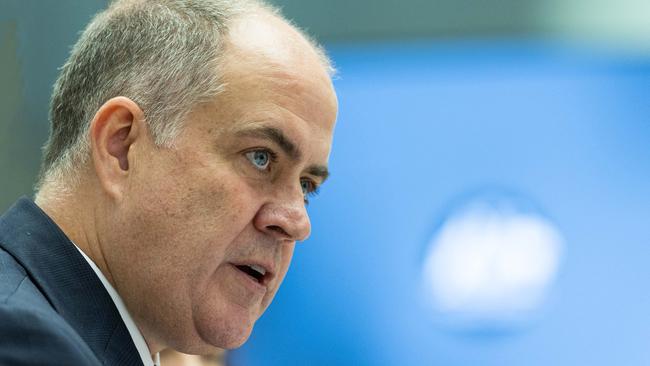
Why not? Because none of them knew about it.
ABC chairwoman Ita Buttrose and the ABC board had kept the decision to reappoint Anderson, approved by the Albanese government on April 18, a secret for almost four months. And on that day in May, Anderson chose not to tell the parliamentary oversight committee that the ABC board had decided to reappoint him.
ABC staff and taxpayers, who shell out more than $1bn annually for what Anderson oversees at the ABC, learned about his new term four months after the board’s decision.
But not from the ABC. The Sydney Morning Herald reported the reappointment on August 23 at 6.15pm. The leak put a rocket under the board. Just over two hours later, the ABC posted the news, simply saying that Anderson’s reappointment was effective from July 1.
Why was Anderson reappointed? Why was it done more than a year before his contract was due to expire in May 2024? Why did the board keep it secret? Why didn’t Anderson tell Senate estimates about it in May? Buttrose and Anderson declined to answer any questions from Inquirer.
A source in the August SMH story said the reappointment was done to maintain stability and continuity, given the ABC had released its five-year plan in June.
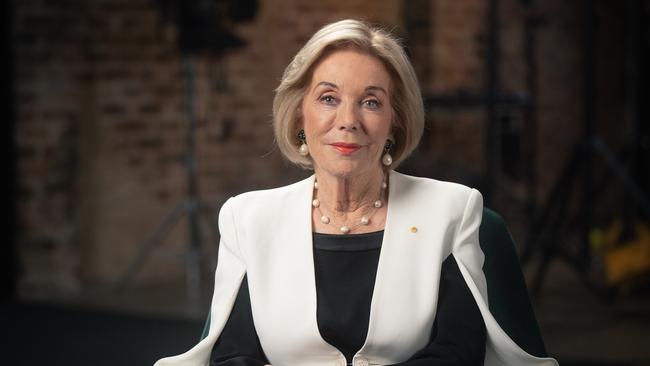
The claim doesn’t stack up. If the intended message was stability and continuity, why didn’t the board announce Anderson’s reappointment when the five-year plan was released? Instead, the board kept his reappointment secret, even after his new contract came into force.
There were further missed opportunities for good governance. If stability was the critical message, why didn’t the board announce his reappointment on August 22, when Communications Minister Michelle Rowland announced that Buttrose would not serve another term as ABC chairwoman?
Weirdly, the SMH story sank without a trace. Yet this was an explosive story. Not just the revelation that Anderson had been reappointed but the timing of it. And the incredible secrecy. This was not stellar corporate governance. In fact, it smelled to high heaven.
But, on the crisis relativity scale, Buttrose, Anderson and their protectors inside the ABC must have been thanking their lucky stars that Stan Grant was causing distractions in late August by accusing the ABC of “institutional failures”. As one senior ABC insider tells Inquirer: “Whether Grant stays or goes has no impact on the ABC, but who sits in the MD’s office will shape the ABC for the next five years.”
Only now is the timing, process and secrecy of Anderson’s reappointment raising questions inside media, political and corporate circles.
The timeline tells a story that defies logic and good corporate governance. When the board decided to reappoint Anderson, two new directors were yet to join. Laura Tingle had been elected in March as staff-appointed director and would join the board on May 1. Fiona Balfour had resigned from the board in February; her replacement had not been announced. There was uncertainty as to whether Joe Gersh, a Morrison government appointment, would have his tenure extended. It wasn’t. His term ended in May.
There was a bigger question mark over Buttrose. It was Canberra’s worst-kept secret that the ABC chairwoman had disappointed both sides of politics, with the organisation bouncing from one scandal to the next in recent years and losing audiences.
The final straw for many was the ABC’s ill-conceived decision to make political editor Andrew Probyn redundant. That misjudgment achieved something rare: it attracted immediate and filthy bipartisan condemnation. While management was being hounded over Probyn, the board was keeping Anderson’s reappointment secret.
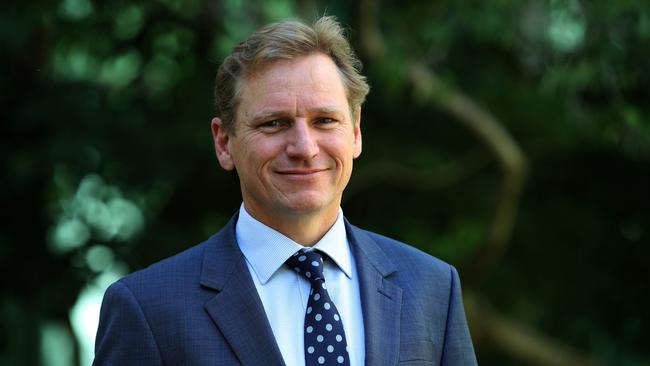
Inquirer has spoken with senior people who chair, and have chaired, some of Australia’s biggest companies. The consensus is that the ABC comprehensively stuffed up Anderson’s reappointment. Given the potential seriousness of the issues, none want to be named.
Each of the experienced and highly respected directors immediately focused on the same questions: the early reappointment, the secrecy and the apparent lack of process at a billion-dollar organisation. Was there a shortlist or any attempt to seriously consider other candidates? What was the board hiding?
One senior chairman describes the timing, given board seats were due to be filled in coming months, and the secrecy as “most unusual”.
“The appointment would have been announced immediately at a publicly listed company,” he observes.
The ABC is not a publicly listed company. But, as the businessman points out, its effective shareholders – taxpayers – were kept in the dark by a media organisation that routinely uses its news and current affairs programs to demand transparency and proper processes from other institutions. The ABC is not shy about piling public shame on public institutions that keep secrets.
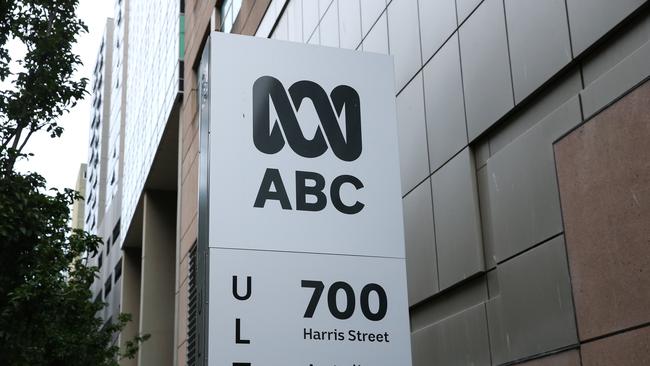
Another chairman asks: “Was the board trying to neuter a new chair, and new directors, from being involved in the single most important decision a board makes: choosing the person to run the ABC for the next five years at a time of unprecedented challenges for the media?
“I would say what they’ve decided is to lock this (appointment) up out of fear the numbers on the board may turn against the status quo and in favour of change.”
This distinguished chairman says the early reappointment means “the new chair will have no real role for most of their term”.
A former chairman of one of Australia’s biggest companies says “it was irregular to reappoint (Anderson) a year before his contract was up” and speculates “there’s a deal somewhere behind the scenes, and they want to do it while this government’s in office”.
The basic governance failures trouble former chairmen of the ABC, too. Donald McDonald, who served as chairman from 1996 until 2006, says: “It is really extraordinary to decide to reappoint somebody whose current contract doesn’t expire for more than 12 months. One would be forgiven for inferring that it was to do with changes at the board. Appointing a managing director is the most important thing a board does.”
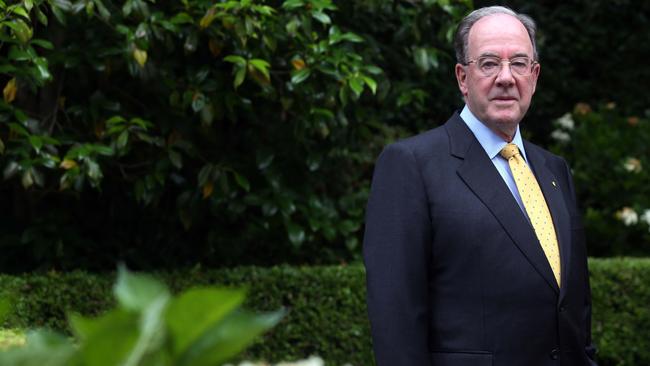
Maurice Newman, who succeeded McDonald as ABC chairman, agrees that it is most unusual.
“Three months, perhaps, but certainly not 12 months,” he says. “And not in these circumstances with new board members due to join the board before that contract expires. You’re depriving new directors of the chance over months to observe the current MD before making the decision on who should head the ABC.
“The ABC is having a lend of us,” says Newman, a regular critic of the ABC’s editorial mistakes and its failed defamation cases that he labels “exercises in vanity”.
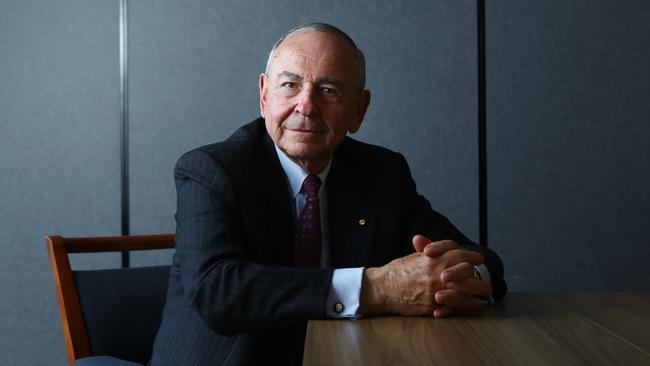
The latest annual report shows the ABC is losing audiences across the board. “And just look at what’s happened to Q+A,” Newman says, alluding to the program’s sinking rankings. This week Q+A managed 209,000 viewers nationally – a long way from the heyday of one million-plus.
The ABC’s management bungles, editorial crises and flailing engagement with Australians, the departure of Buttrose in March next year and the original slated exit of Anderson a few months later in May 2024, along with three new directors, offered a rare opportunity for a new direction at the ABC. Inquirer understands there was a sense within the ABC that Anderson did not want another term, that he found the role too hard.
It might be a tough gig. But it is also highly coveted. It pays more than double what the Prime Minister earns and, unusual for a chief executive, comes with a five-year security blanket. As one ABC insider familiar with the secret reappointment said, “Everyone is baying for blood at Optus for its mistake. But at the ABC it’s virtually impossible to get rid of an MD unless you pay out the entire five-year contract.”
Anderson’s reappointment maintains what many see as the ABC’s commitment to mediocrity. Some inside the public broadcaster have argued for better news judgment, higher-quality news reporting and tougher social media rules. “The ABC should adopt the tougher zero-tolerance social-media policies of the BBC,” one insider says.
The change also could have curbed the narcissism of some high-profile ABC journalists.
Senior ABC insiders spoke with Inquirer on condition of anonymity. They say Anderson has his protectors within the ABC. Those who don’t toe the official line can expect retribution.
Inquirer understands Anderson’s secret reappointment was leaked to Nine newspapers by people who were concerned that it should have been announced in the proper way, and that some board members were agitating for staff and taxpayers to be told. There was, after all, no reason for it to be kept secret. Or was there?
Inquirer has been told by a few ABC people close to the decision that ego might explain the decision: Buttrose’s ego. Is it possible that Buttrose didn’t want the eventual announcement of her reappointment or retirement as ABC chairwoman overshadowed by news of Anderson’s reappointment?
Victorian Liberal senator Sarah Henderson was stunned when she learned about the secret reappointment. Henderson, who worked as a journalist at the ABC before politics, has been focused doggedly on trying to improve editorial standards, transparency and accountability at the ABC.
Henderson, who questioned Anderson at Senate estimates in May, has long suggested the ABC follow its British counterpart, the BBC, with more accountable social-media policies that prevent journalists spouting their opinions. Similarly, she has suggested the ABC should follow the best practice of the BBC and reveal the salaries of its highest earners.
The BBC website is a paragon of accountability and transparency compared with our publicly funded broadcaster.
“Mr Anderson has failed the transparency test,” Henderson tells Inquirer. “When asked about his pay rise at Senate estimates in May, Mr Anderson did not disclose he had just secured another five-year contract with total remuneration likely to be well in excess of $5m.”
The reappointment, she says, represents an unacceptable level of secrecy from the Albanese government, too.
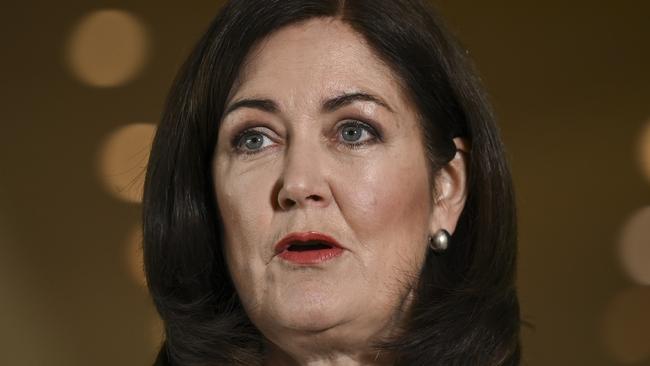
Opposition communications spokesman David Coleman agrees. He tells Inquirer the government and the ABC “have treated the public with contempt on this matter”.
He asks: “Why did the ABC and Minister Rowland want to hide this information? No explanation for this secretive conduct has ever been provided. Their behaviour shows a total lack of respect for the Australian community.”
In her letter to Buttrose, Rowland said she was “pleased to advise you that on 18 April 2023, the government approved the ABC’s proposal to reappoint Mr Anderson”. Why did Rowland approve the appointment when the ABC Act makes clear in section 13 that the decision is for the board?
No wonder senior Australian business figures, former ABC chairmen and ABC insiders are wondering whether the secret and early reappointment of Anderson was a stitch-up.








On May 24, ABC managing director David Anderson fronted Senate estimates to answer questions from a line-up of senators. For hours that autumn afternoon, the head of the publicly funded national broadcaster was asked to explain how money was spent at the ABC, its editorial decisions and Anderson’s role as editor-in-chief. Not a single senator asked Anderson about his reappointment for another five years at a cost to taxpayers of more than $5m.